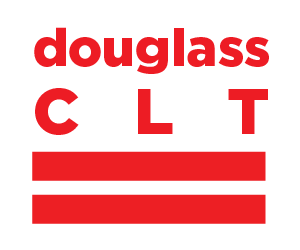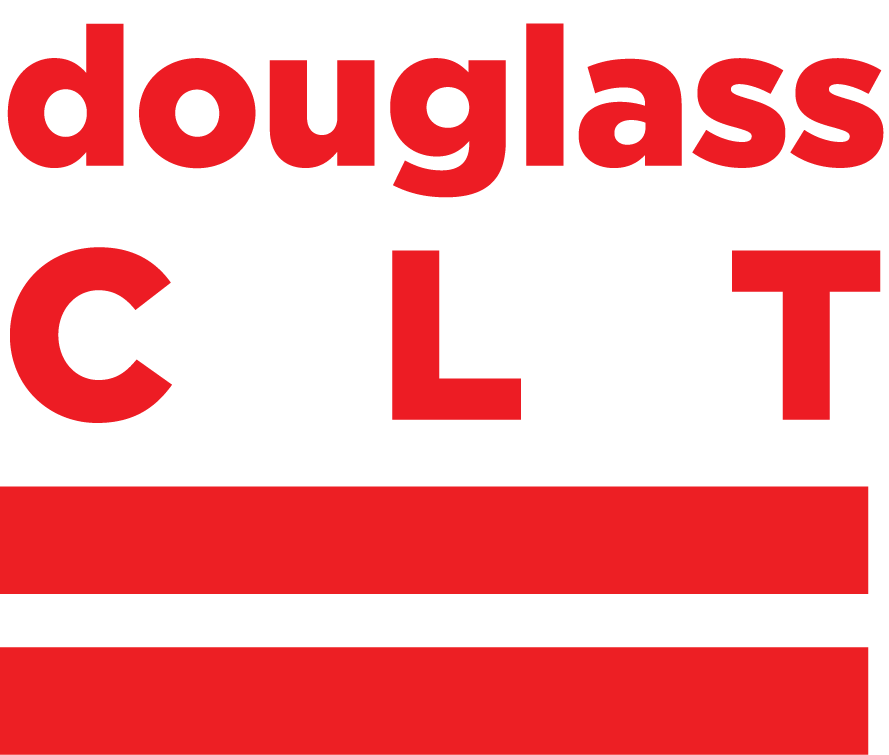Council of DC, Committee on Housing and Executive Administration, Public Hearing B24-0802: Green New Deal for Housing Amendment Act of 2022
Douglass CLT testified before the DC Council Committee on Housing and Executive Administration on November 22,2022. Councilmember Janeese Lewis George introduced the legislation (with six co-introducers) which would establish an Office of Social Housing Developments, saying it is “about confronting our housing crisis, our displacement crisis, our climate crisis, with a comprehensive approach…” The bill drew a lot of interest, as there were more than 150 witnesses who testified over an 11 hour period!
You can watch the entire hearing on YouTube here. Douglass CLT Board President Vaughn Perry appears at the 7:20:10 mark. Other witnesses -members & non-members- also brought up Douglass CLT in their testimony, as one of the approaches that should be considered.
Read Vaughn’s full testimony below.
Good morning, Chairperson Bonds and members of the Committee. My name is Vaughn Perry. I’m a long-time Ward 8 resident, and President of the Board of Directors of the Douglass Community Land Trust (Douglass CLT).
Douglass CLT is a membership nonprofit, centered on racial and economic equity, and organized to secure permanent affordability for current and future generations of Douglass Commonwealth residents, including homebuyers, renters, local business owners, and more. We act with urgency to contribute solutions to address the intensity of displacement from gentrification. Our portfolio now includes 224 permanently affordable homes, including rental, limited equity housing cooperatives, condominium units and single-family homes, with 69 more in process and hundreds more in the prospective pipeline. Our work aligns with DC’s stated public policy goals of assuring long-term affordability for the residents who live here and effectively stewarding limited DC resources.
16,000+ Turkeys
My fellow residents and colleagues have testified about how great the need is for housing, resources and other supports for people with low incomes here in DC. One figure stuck me particularly in this holiday season: more than 16,000 turkeys were distributed by Bread for the City alone before they had to close the program, citing the disproportionate need to availability. This is no surprise. Increases in real estate prices and the cost of living far outpace increase in incomes; median home sale prices increased 59% over the past 10 years, while median family income growth was only 1/3 that, and more if accounting for inflation. Forty-eight percent of DC renters are paying more than 30% on housing. For residents with low incomes, the problem is intensified; more than 65,000 (20% of all) households in DC earn less than $35,000, almost the amount that a full-time worker at minimum wage would earn. Yet the average fair market rent for a 2-bedroom is $1,785. Further, as the DC Comprehensive Plan states “Housing in the District must also be understood through a racial equity lens. Forty-nine percent of white households are owner-occupied, while only 35 percent of Black and 30 percent of Latino households are owner occupied, and the median value of Black-owned homes is less than that of white homeowners.” The global pandemic exacerbated the tenuous nature of housing stability and further limited opportunities for DC residents, particularly black and brown low-income residents, to participate in ownership or even find housing to rent that is healthy, affordable and relatively close to where they work.
It is the severity of this need across DC – along with the recognition that DC residents themselves, with proper resources and support, have the experience and expertise to lead our solutions. Douglass CLT is supportive of new and expanded solutions to address housing affordability and the availability of housing that is affordable particularly to residents with low income. We support models of investment that enable generations and generations of DC residents to benefit.
Support for Permanent Affordability
Douglass CLT fully supports the commitment to permanent affordability in this bill, as it prevents economic displacement and efficiently maintains the public’s investment in housing. Market pressures are increasingly likely to remove affordable units from the affordable housing stock, whether they are “naturally” affordable (likely in poor condition) or at the end of their affordability compliance period if subsidized. It is imperative that we create, secure, and steward permanently affordable spaces – particularly since the supply of affordable housing is insufficient. The same holds for the availability of affordable commercial spaces for local small businesses and community-serving nonprofits.
Supporting Health and Environmental Sustainability
The legislation’s intentionality around the intersection of environmental sustainability and housing aligns with one of Douglass CLT’s core values to ensure healthy housing via environmentally sustainable development and operation. Housing is a proven determinant of health; healthy housing means embracing the environment as an asset and protecting the air we and our children breathe, the water we drink, and the food we eat.
Support for approaches that elevate equity
Just as importantly, Equity must apply to both outcome and to process. Fundamentally, Equity in housing includes both the ability to be secure in one’s home and for residents to participate in decision-making about their housing. For this reason, we appreciate that Bill B24-802 calls for residents in social housing to play a role in some aspects of operations, including
- to be consulted and give their approval of the hiring and supervision of private management companies to oversee the day-to-day operations of each social housing development;
- would be included in a coordinating council; and
- would be able to create tenant leadership boards with rights to approve service agreements and see annual reports.
But we want to go further!
Incorporating the CLT approach
These tenets around equity and community control, self-determination and solidarity are also core principles of traditional community land trusts, an American model of housing that emerged from the Civil Rights movement and continues to grow across the US. We believe there is potential to incorporate even more of elements of the CLT model into Social Housing. For example, a publicly held social housing building could place the land beneath the building into the CLT, which would bring the aspect of community ownership and collective stewardship. This can serve to develop internal capacity at a site for more resident input into decision-making.
Social housing is run by the government. And unlike classic CLT’s or traditional nonprofit housing development corporations, social housing is not inherently “community based.” We have to be more intentional about that aspect.
As a democratically run organization, Douglass CLT adds a layer of resident control for all tenures of housing. Members vote for the members of the board of directors, may run to sit on the board of directors, and approve all significant organizational or affordability changes, and provides feedback on the operation of the organization. Douglass CLT uses this direction and information to enforce land lease provisions to ensure representation of the residents to the greatest degree possible.
And, as part of our stewardship of housing developed for the public interest, Douglass CLT provides assistance to tenant associations and the boards of directors of limited equity housing cooperatives and condominium associations, to keep residents well informed on decision points necessary for the operation of the development and incorporating the feedback from engaged residents to account for upcoming maintenance needs.
Financing / Cross-Subsidization
We like the aspect of internal cross-subsidization at developments, that is units for households with higher income/ higher rents can help pay for / subsidize units for households with lower incomes who pay less. Overall operating costs could therefore be borne in a progressive, more equitable fashion. This also means we need to increase the volume of housing created in this manner to achieve our affordability goals. Further – the need for additional subsidy is certain, as current funding availability easily outstrips need, even with a portion of it coming from higher-rent units.
That said, especially because this housing is going to be permanently affordable, the financing structure will need to be carefully considered on the acquisition and development budget as well as ongoing operating. There is a great deal of complexity in layering the existing sources of funding necessary for a housing development. It is made more complex with a mixed-income development, and even more so with mixed -income, mixed use. We applaud efforts to fix what can be a regulatory and financial morass to leverage existing federal and local funding sources without causing a tremendous degree of additional compliance effort. We also have some concerns about how effective administrative oversight would occur, particularly if the Office were not adequately funded and staffed with the necessary expertise.
In closing, Douglass CLT looks forward to a continuing dialogue about the critical steps needed to address the Housing and Climate crises and drive toward racial and economic equity in our community. We encourage Council to continue to increase the funding available for permanently affordable housing as well as commercial spaces, through efforts that center democratic resident control and collective stewardship of the public’s investment.
Thank you for the opportunity to testify.

